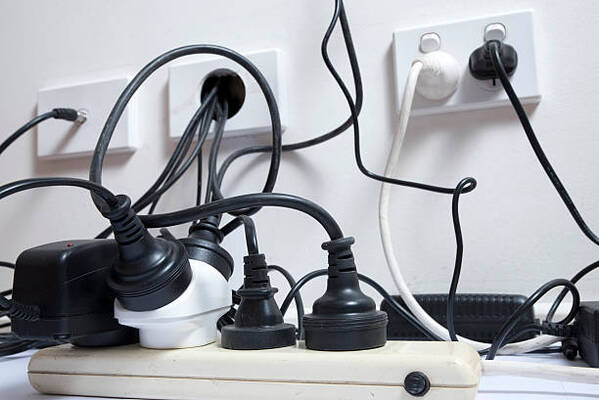- 1-905-452-8193
- Contact Us
- Member Login
- Get Listed Today
- 220,911 members

It is no secret that our homes are filled with more electronics than ever before. From smartphones and laptops to TVs and gaming consoles, it can be tempting to want to plug everything in at once. As homes have become more technologically advanced, the need for additional outlets installed by an electrician Central Coast to accommodate all of our devices has increased. While it may be tempting to overload a power outlet by plugging in multiple devices, it is not safe to do so and can cause damage to your home’s electrical system. Overloading your outlets can cause several problems, including electrical fires.
When you overload an outlet, you run the risk of overloading the circuit that the outlet is connected to. This can cause a fire or even an explosion. In addition, overloaded outlets can cause damage to your appliances and electronics. So, if you want to protect your home and your belongings, it’s best to avoid overloading power outlets.
Most of us are guilty of it. We have too many devices that need charging and not enough outlets to accommodate them, so we end up plugging multiple devices into one outlet. The risk of overloading power outlets is especially high during the holidays when homes are filled with guests and additional lights and decorations are used. To protect your home and loved ones, it is important to take precautions against overloading power outlets.
Here are several reasons why you should avoid overloading your power outlets at home:
1. It can cause an electrical fire – When too many devices are plugged into one outlet, it can cause a build-up of heat. This can lead to an electrical fire that could put your home and family at risk.
2. It can damage your appliances – If you overload an outlet, it can cause damage to the appliance or devices that are plugged in. This can lead to costly repairs or replacements.
3. It can trip your circuit breaker – When an outlet is overloaded, it can cause the circuit breaker to trip. This will cut off power to the outlet and any devices that are plugged into it.
4. It can cause a power outage – If an electrical fire occurs or the circuit breaker trips, it can cause a power outage in your home.
5. It can cause electrocution – If you touch an overloaded outlet, you could be electrocuted. This is especially dangerous if you are wet or standing in water.
6. It can damage your home’s wiring – Overloaded outlets can damage your home’s wiring, which can be expensive to repair.
7. It’s just not worth the risk – When you consider all of the risks that come with overloading an outlet, it’s just not worth it. It’s best to play it safe and only plug in as many devices as the outlet can handle.
If you have too many devices that need charging and not enough outlets to accommodate them, try using a power strip. This will allow you to plug multiple devices into one outlet without overloading it. Just be sure to unplug the power strip when you’re not using it so that it doesn’t become a fire hazard.
If you need additional outlets, consider installing new ones or having an electrician add more circuits to your home’s electrical system. This will provide you with the power you need without putting your home at risk.
Some simple steps that can help prevent overloading power outlets include:
• Avoid using multiple extension cords. If additional outlets are needed, use a power strip with an internal circuit breaker.
• Do not plug large appliances into small outlets or extension cords.
• Inspect all electrical cords before use and discard any that are frayed or damaged.
• Do not overload outlets by plugging in too many devices. Unplug some devices if necessary.
• Be aware of the signs of overloaded circuits including flickering lights, buzzing sounds, or sparks coming from outlets or cords. If you see any of these signs, unplug devices and do not use that outlet until it has been inspected by a qualified electrician.
Taking these simple precautions can help keep your home safe from the dangers of overloading power outlets.
